#native american poets
Text
(Something my step-dad would say to me)
“Rain, there are two wolves inside us; a white wolf and a black wolf, and they are constantly fighting. The question isn’t ‘who will win the fight?’, the question is ‘which one will you feed more?’.
#writeblr#writers and poets#writers on tumblr#writerscommunity#poetry#writing#artists on tumblr#poem#poets on tumblr#nostalgia#native american#proverb#quotes#inspiring quotes#inspiration
56 notes
·
View notes
Text
"I came into this world already scarred by loss on both sides of my family. My Indigenous side; my European side. My father and my mother were the kind of damaged people who should never have had children. But of course, they had me, and so my first language was loss."
Deborah Miranda, When Coyote Knocks on the Door (2021)
#quotes#literature#lit#poetry#spilled ink#modern literature#poets of color#native literature#indigenous literature#native authors#native writers#women authors#women writers#queer authors#queer writers#indigenous writers#indigenous authors#indigenous women#native american literature#deborah miranda#american literature
57 notes
·
View notes
Text
Memorial Day, 1972
I was too young to clean graves
so I waded into the uranium river
carrying the cat who later gave birth
to six headless kittens.
O Lord, remember, O, do remember me.
— Sherman Alexie, One Stick Song (2000)
#Memorial Day 1972#Memorial Day#Sherman Alexie#One Stick Song#poetry#writing#literature#poets on tumblr#environment#uranium#Native American#Indian#1970s
15 notes
·
View notes
Photo
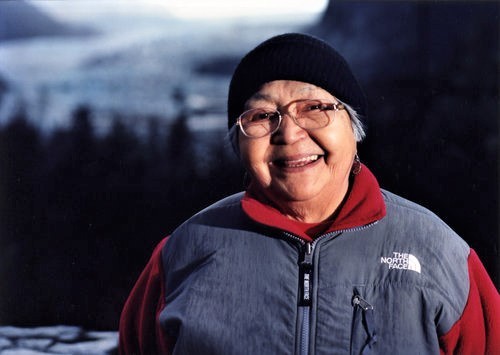
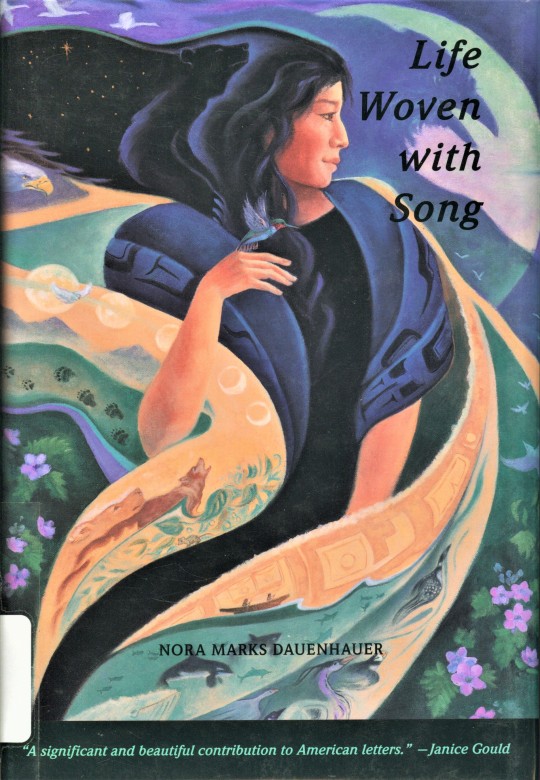



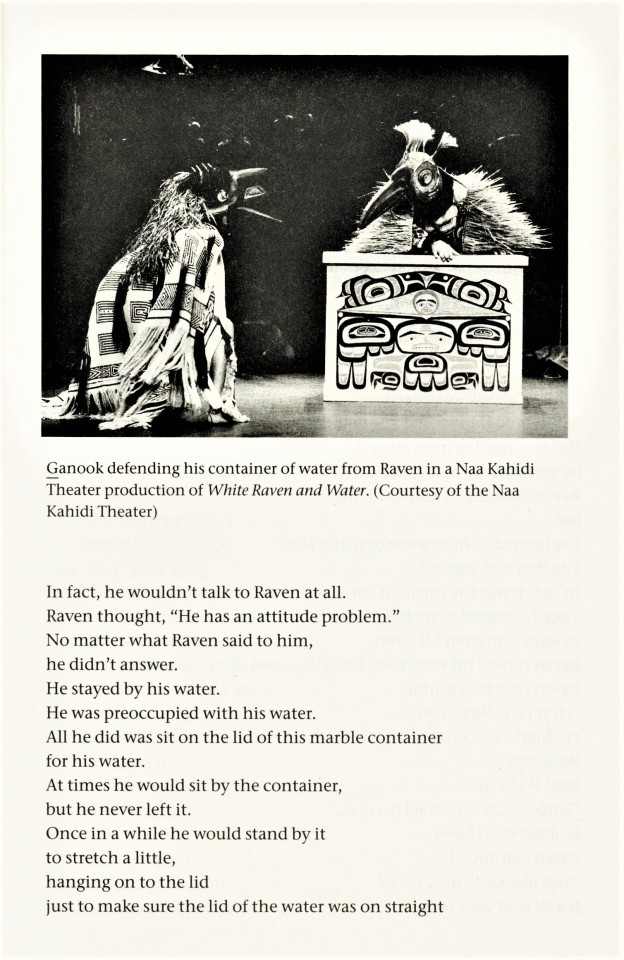
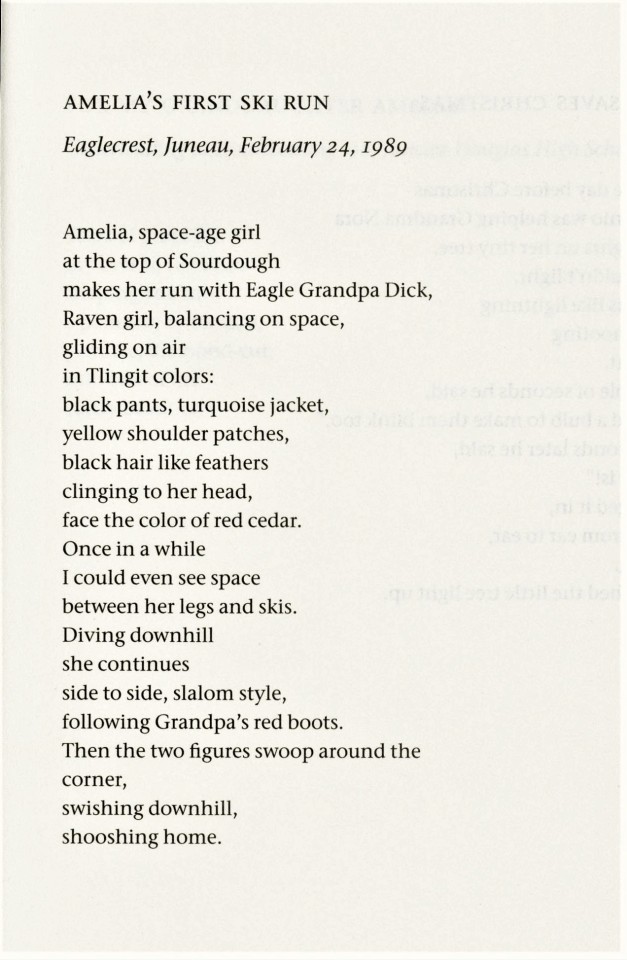
Native American/First Nations Woman Writer of the Week
NORA MARKS DAUENHAUER
Continuing on our trek through what remains of March, I offer you another Indigenous woman writer, Nora Marks Keixwnéi Dauenhauer (1927-2017), a Tlingit writer from Juneau, Alaska. Born in Juneau, Dauenhauer grew up there as well as in Hoonah, Alaska with a father who was a fisherman and carver, and a mother who was a beader. Dauenhauer lived at times with her parents on a fishing boat and in seasonal camps. Being a member of the Tlingit tribe, her first language was Łingít, and she did not learn English until she was eight.
Following her mother in the Tlingit matrilineal system, she was a member of the Raven moiety of the Tlingit nation, of the Yakutat Lukaax̱.ádi (Sockeye Salmon) clan, of the Shaka Hít or Canoe Prow House, from Alsek River. She was chosen as clan co-leader of Lukaax̱.ádi (Sockeye Salmon) in 1986 and as trustee of the Raven House and other clan property. She was then given the title Naa Tláa (Clan Mother) in 2010, becoming the ceremonial leader of the clan.
Dauenhauer earned a BA in anthropology from Alaska Methodist University in Anchorage. In the early 1970s, she married poet and Tlingit scholar Richard Dauenhauer and together they made significant contributions to preserve the Tlingit oral traditions in their Classics of Tlingit Oral Literature book series. Nora Dauenhauer became a Tlingit language researcher for the Native Language Center at the University of Alaska, Fairbanks from 1972-1973, and then became the principal researcher in language and cultural studies at the Sealaska Heritage Foundation in Juneau from 1983-1997.
On the subject of preserving the Tlingit oral tradition and its importance, Dauenhaur said:
People are now beginning to take action for language and cultural survival, and my work is to help provide inspiration and tools for this through my writing.
Dauenhauer had several accomplishments, including being named the 1980 Humanist of the Year by the Alaska Humanities Forum. Together, the Dauenhauers were awarded the Alaska Governor’s Award for the Arts, two American Book Awards, and a Before Columbus Foundation American Book Award. In 2005, Nora Dauenhauer was the recipient of the Community Spirit Award from the First People’s Fund.
As a poet, Nora Dauenhauer published two collections, one of which we hold in Special Collections, Life Woven With Song, published by the University of Arizona Press in 2000 (the other is The Droning Shaman, Black Current Press, 1989). This book recreates the oral tradition of the Tlingit people through written language in a variety of literary forms, and records memories of Dauenhauer’s heritage from old relatives and Tlingit elders, to trolling for salmon and preparing food in the dryfish camps and making a living by working in canneries.
Author Photo is by Hulleah Tsinhnahjinnie
See other writers we have featured in Native American/First Nations Woman Writer of the Week.
View other posts from our Native American Literature Collection.
-- Elizabeth V., Special Collections Undergraduate Writing Intern
#Native American/First Nations Woman Writer of the Week#women's history month#Native Americans#Native American writers#Native American women writers#Nora Marks Dauenhauer#Richard Dauenhauer#Tlingit#Life Woven With Song#University of Arizona Press#Alaskan writers#poets#poetry#Elizabeth V.#Native American Literature Collection
136 notes
·
View notes
Text
timers and curfews.

i find myself,
starting to hate timers.
why?
i'll never know.
well
actually
i
do.
as you wrap your
arms around my waist,
i feel my body shiver;
twitch.
i feel the concept
of
time start to become
the least of my worries...
images of what we could do
while frank ocean plays,
flash in my
perverted mind.
my breathing quickens.
your hands trail further.
my body leans in closer.
i respond with a soft sigh.
and there it is.
that god awful.
timer.
to ruin our moment.
we awkwardly say goodbye.
i roll over as you drive away.
and i lay,
and think,
"maybe another time."

maybe i'm just bad at acting on affection.
the song i listened to today:
#loserpoetrv#creative writing#creative poetry#new writer#new poet#writers and poets#writing#poets of tumblr#you are loved#you are not alone#and you are beautiful#remember this.#poetry#original poetry#original poem#poetscommunity#female poets#poc poet#native poet#native american#shitty poetry#wlw post#wlw yearning#wlw poetry#wlw poem#if you know me irl no you dont#theyre so good at kissing#im so gay#oh my god#help
9 notes
·
View notes
Text
"I’ve lost my long hair; my eagle plumes too. / From you my own people, I’ve gone astray. / A wanderer now, with no where to stay."
Read it here | Reblog for a larger sample size!
#open polls#polls#poetry#poems#poetry polls#poets and writing#tumblr poetry#have you read this#the indian's awakening#zitkála-šá#gertrude simmons bonnin#native american#sioux#residential schools
8 notes
·
View notes
Text
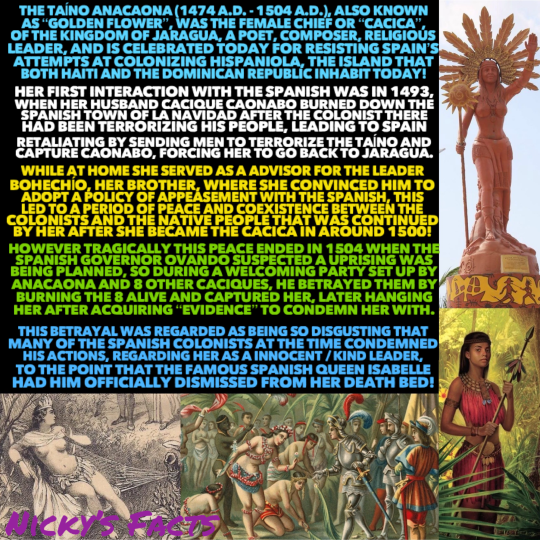
Anaconda remained a advocate for peace to the very bitter end.
🏵️
#history#anacaona#taino#historical figures#hispaniola#native american history#cacica#haiti#dominican republic#womens history#queen#female rulers#royalty#indigenous peoples#jaragua#girl power#caribbean history#female poets#colonization#peacemaker#historical women#royal history#new spain#queencore#1400s#1500s#caribbean sea#nickys facts
12 notes
·
View notes
Text
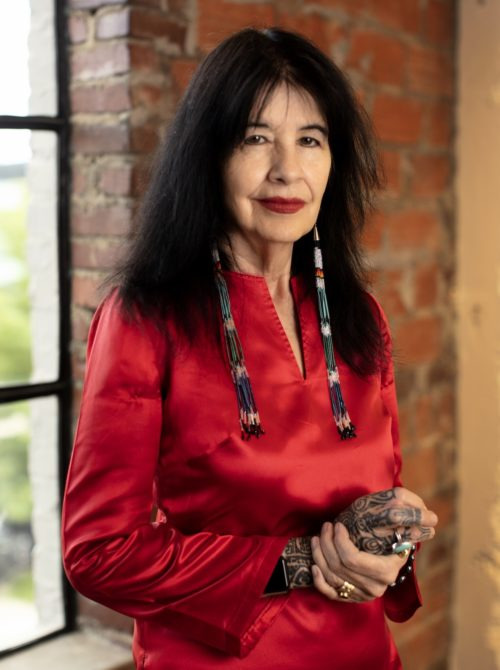
Joy Harjo is an internationally renowned performer and writer of the Muscogee (Creek) Nation. She served three terms as the 23rd Poet Laureate of the United States from 2019-2022 and is winner of Yale's 2023 Bollingen Prize for American Poetry. Read her full bio. here
Perhaps the World Ends Here by Joy Harjo
The world begins at a kitchen table. No matter what, we must eat to live.
The gifts of earth are brought and prepared, set
on the table. So it has been since creation, and it will go on.
We chase chickens or dogs away from it. Babies teethe at the corners. They scrape their knees under it.
It is here that children are given instructions on what it means to be human. We make men at it, we make women.
At this table we gossip, recall enemies and the ghosts of lovers.
Our dreams drink coffee with us as they put their arms around our children. They laugh with us at our poor falling-down selves and as we put ourselves back together once again at the table.
This table has been a house in the rain, an umbrella in the sun.
Wars have begun and ended at this table. It is a place to hide in the shadow of terror. A place to celebrate the terrible victory.
We have given birth on this table, and have prepared our parents for burial here.
At this table we sing with joy, with sorrow. We pray of suffering and remorse. We give thanks.
Perhaps the world will end at the kitchen table, while we are laughing and crying, eating of the last sweet bite.
"Perhaps the World Ends Here" from The Woman Who Fell From the Sky by Joy Harjo. Copyright © 1994 by Joy Harjo.
#american poetry#joy harjo#native american poet#poet laureate#poetry#native american heritage month#muscogee (creek) nation#academy of american poets
16 notes
·
View notes
Note
Do you have any native folklore you’ve always wanted to write about? I can say I’m educated enough on the topic to offer ideas, but I do love to hear others passions
I have a lot of ideas. Lol. I’m sure you’ve seen but I always love hearing more ideas too! The only ones that I won’t write about are Sk1nw@lk3rs and W3nd1g0s. Don’t even like spelling them out. Feel free to ask me to write about whatever Indigenous monster/folklore/story you’d like to read
#writers on tumblr#writing#fantasy romance#author#monster lover#monster romance#anon ask#answered asks#writers and poets#asks open#anon asks#ask blog#send asks#send me asks#ask me anything#indigenous mythology#indigenous folklore#indigenous#native american#native folklore#native author#indigenous author#native writer#indigenous writer
10 notes
·
View notes
Text
This is a poem I wrote a few weeks ago inspired by the Palestinian resistance and liberation movement, as well as my local community and my own advocacy and involvement in nonprofit organizations over these last few months for Palestinian AND collective liberation.
“Everyone Is Palestinian”
You think you’re unaffected by a nation of people being ethnically cleansed?
An ongoing genocide of brothers and sisters and family you’ve never met
Does it really matter if you’re not from the same descent?
Or how we argue over holy words and which religion determined what they meant
You won’t shame or tell infants to repent
But when they’re older you tell them they’ll go to hell if they disagree
with what man said God said
As the ancestors died being forced to repeat it
Innocent children pledging allegiance to a flag
And a bloody star spangled banner decorated past
“Alright kids now sing along with the class”
To camouflage the truth of all that came before that
But do you even know how many ancestors a person has?
I said do you really even know how many ancestors you have?
“For you to be born today from 12 previous generations, you needed a total of 4,094 ancestors over the last 400 years.”
So how many for the previous unaccounted 159,600 years since the modern homo sapien?
And I don’t know a single one
Not a name
Or story
or testimony
Do you?
Hundreds of years of thousands of ancestors
Silenced and forgotten
Demonized and oppressed
Displaced, enslaved, white washed, and distressed
Did I mention the women were topless?
They were safe
There was no rape
Until they came on their ships and called us Indians
But what am I really?
Is it where i was born?
Where I grew up?
Where my parents are from?
or their parents?
And what about their great great grandparents parents?
I’d call myself tri-cultural and pride myself in these labels
“I’m Spanish, I’m afro-latina, I’m boricua, I’m nuyorican”
But some people hear “I’m dirty I’m lazy I’m a savage I’m ghetto”
what we really mean is our bloodlines have been diluted with injustice and society adorned by ignorance
No soy yo que es un salvaje (It's not me who's a savage)
Wait, I’m sorry I forgot spanish isn’t actually my native language
Who are the tainos and arawaks?
I never knew my roots were indigenous
So does it really matter what you call me or where im from
if it’s all just a byproduct of colonialism?
Call me the continuation of the lives that have been erased
the manifestation of prophecy
the physical incarnation of an entire lineage gone but never forgotten
the accumulation of thousands years of unfinished history
the redemption of all of those who have come before me
the stepping stones of all those who come after
the voices of the armies of ancestors who walk alongside us proudly and boldly
standing in solidarity with those who have passed the torch onto us illuminating the ways in which we have all been lied to and deceived and divided but never conquered
the catalyst of the catalyst of the ascension and evolution of humanity and our consciousness picking up where we left off the many times we did over the centuries
Only to return again and again
One as a queer, one as a Palestinian
As a black sheep
As a generational curse breaker
As a freedom fighter
As a visionary
As an artist
As a rebel
As a dreamer
As a painter
As a dancer
As a singer
As a writer
As a poet
As a musician
As an anarchist
As a revolutionist
As a humanitarian
As a philanthropist
As a leader
As a healer
As a lover
As a friend
As a Christian
As a Muslim
As a Jew
As a buddhist
As an agnostic
As a nihilist
As an existentialist
As an atheist
As a patriot
As a veteran
As a medic
As a felon
As a first responder
As a barefoot hippie pothead stoner
As a psychedelic and mushroom lover
As a wayshower
As a lightbearer
As an astral surfer of cosmic waves
As an interdimensional sailor of new horizons
As a guardian of mother earth and all her inhabitants
As a pioneer of the future
As a redeemer of our ancestral past
As a liberator of humanity
As an ally
As a human
As a being
As a universe
As one
The bloods and the crips, two infamous gangs notorious for their rivalry called a truce during the peak of Black Lives Matter protests in the summer of 2020 in lieu of George Floyd and countless of other victims of police brutality.
Since October 7th thousands of people and children have died at the hands of an illegal occupation and apartheid state, hundreds of thousands since 1948.
Millions since the european colonization of America, let alone Palestine.
What did the world do then?
What will the world do now?
Below is a video of me reciting this poem in front of City Hall in Orlando, FL on Saturday April 6th, 2024 at a “Say Their Names” vigil to honor and commemorate the victims of state violence here and abroad. Since this day I have relentlessly attempted to post this video on my Instagram, but the app conveniently seems to crash every time I do. Stop the censorship and stop the genocide. Cease fucking fire and end the occupation NOW!!!
#original poem#poems and poetry#poets on tumblr#poems on tumblr#poem#my poem#revolutionary#revolutionary poem#ancestors#my ancestors#colonialism#colonization#colonial violence#end settler colonialism#revolt#free palestine#indigenous#native american#free turtle island#freedom fighter#free gaza#free us all#writers on tumblr#writers and poets
4 notes
·
View notes
Text
Val and Jim being unofficial twins
part 2

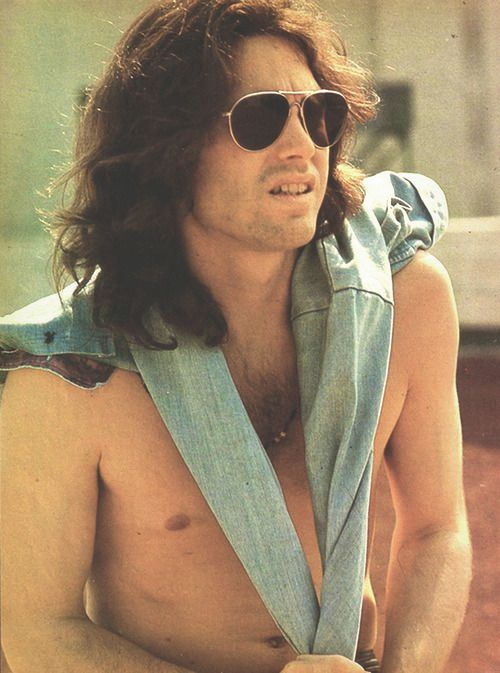
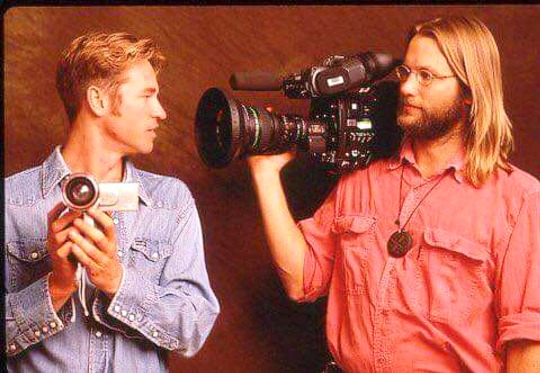
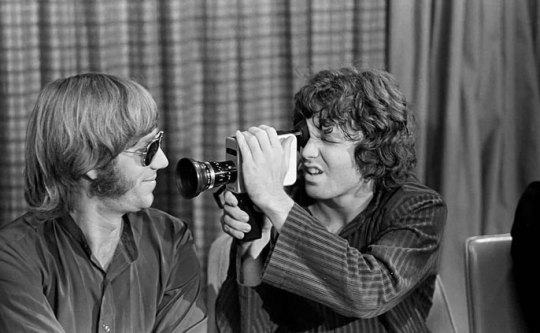
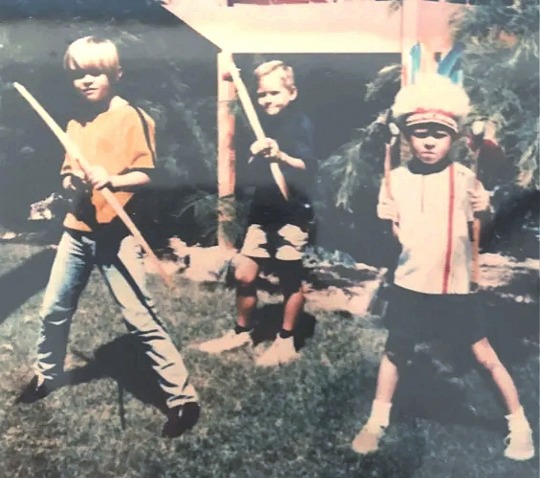

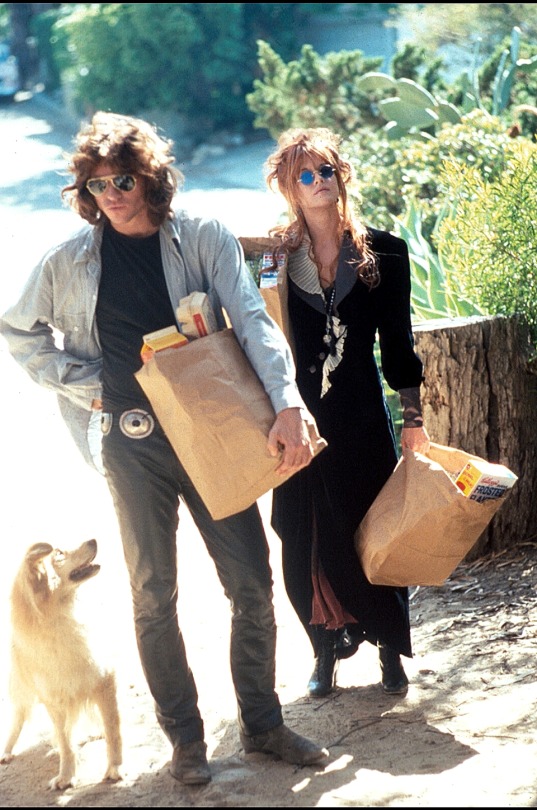



Part 1
#Val Kilmer#The doors#Jim morrison#the lizard king#The doors 1991#Part 2#Twins with 15 year age gap#mr mojo risin#Kindered spirits#Minus the substance abuse#And the alcohol#Poets#Rebels#Icons#Native American#Val is quarter Cherokee
45 notes
·
View notes
Text
Natalie Diaz
youtube
Natalie Diaz was born in 1978 in Needles, California. Diaz's poetry deals with her own experience growing up on an Indian reservation and the issues facing Native Americans. Her debut poetry collection, When My Brother Was an Azetc, was published in 2012 and won the American Book Award. Her poetry collection Postcolonial Love Poem won the 2021 Pulitzer Prize in Poetry and was a finalist for the 2020 National Book Award. Diaz has received numerous other honors, including a MacArthur Fellowship and the Nimrod/Hardman Pablo Neruda Prize for Poetry.
#native american#indigenous#native americans#writers#poets#poetry#native writers#mojave#american indian#Youtube
9 notes
·
View notes
Text
"Sometimes you lose something so big, so immeasurable, that bearing your grief requires an act just as complicated and unfathomable as that loss."
Deborah Miranda, When Coyote Knocks on the Door (2021)
#quotes#literature#lit#poetry#spilled ink#modern literature#poets of color#women authors#indigenous authors#indigenous writers#native writers#native american literature#native women#native authors#queer writers#queer authors#deborah miranda
20 notes
·
View notes
Text
Migration, 1902
The salmon swim
so thick in this river
that Grandmother walks
across the water
on the bridge
of their spines.
— Sherman Alexie, One Stick Song (2000)
#Migration 1902#Migration#Sherman Alexie#One Stick Song#poetry#writing#literature#poets on tumblr#Native American#Indian#American Indian
14 notes
·
View notes
Photo




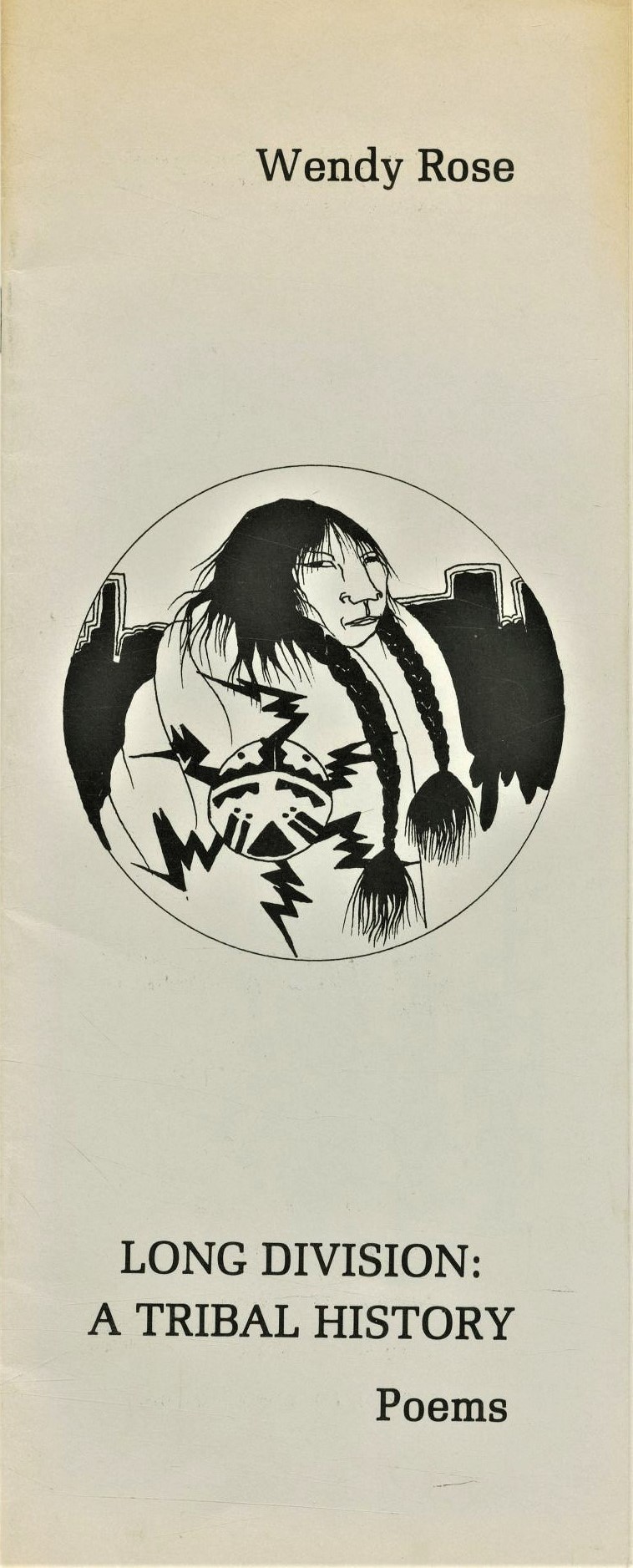

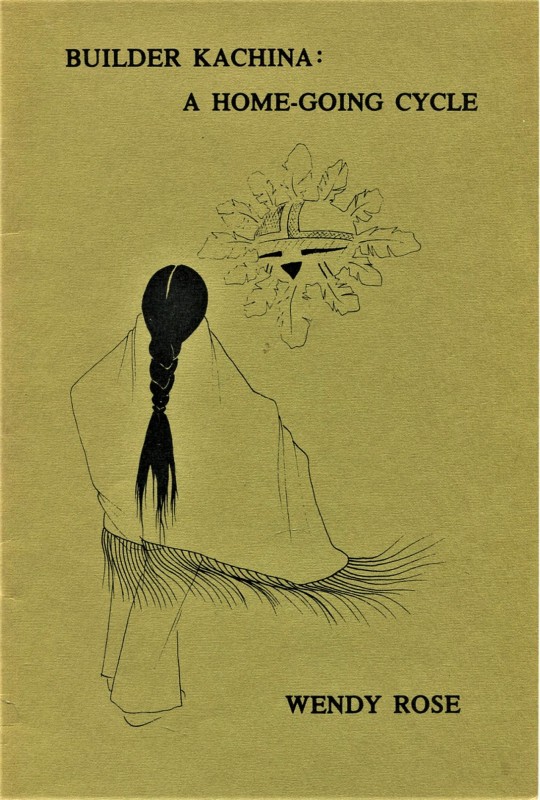

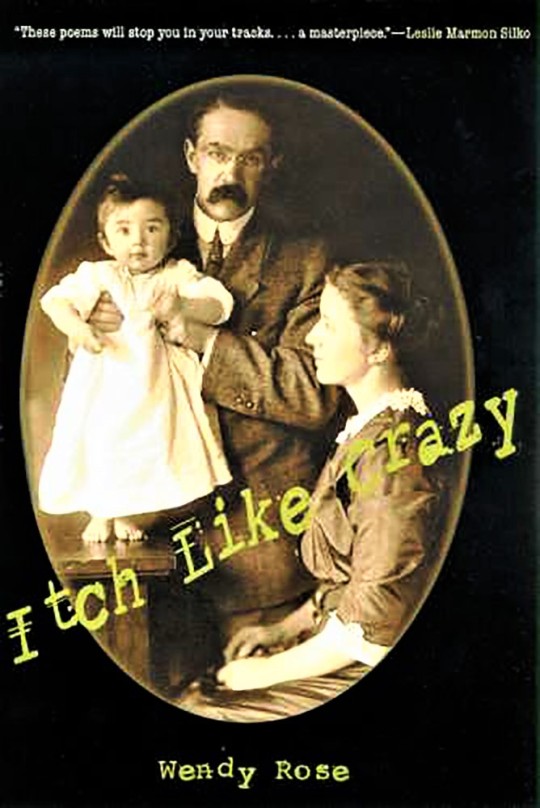

Native American/First Nations Woman Writer of the Week
WENDY ROSE
Hopi/Miwok writer Wendy Rose (1948-) was born in Oakland, California, and did not experience a reservation childhood. She had few connections to her Hopi and Miwok heritage save for stories from her father’s Hopi people. This childhood experience helped shape Rose’s poetry and her focus on reclaiming her cultural identity. Her work is influenced by ethnography, her personal experience of identity, and both her political and feminist stances. Besides poetry, Rose also writes nonfiction that addresses issues of appropriation of Native American culture.
As a young woman, Rose dropped out of high school, joined the American Indian Movement (AIM), and participated in the 1969-71 occupation of Alcatraz. Rose did return to school and earned a BA, MA, and a PhD in anthropology, all from the University of California, Berkeley. Her studies in anthropology helped bridge the gap between her early experiences and her indigenous identity, and she stated that during her time at Berkeley she often “felt like a spy in the field of anthropology.” This experience also led to a decades-long academic career.
UWM Special Collections preserves seven collections of Rose’s poetry: Hopi Roadrunner Dancing (Greenfield Review Press, 1973); Builder Kachina (Blue Cloud Quarterly, 1979); Long Division: A Tribal History (Strawberry Press, 1981); What Happened When the Hopi Hit New York (Contact II Publications, 1982); Going to War With All My Relations ( Northland Publishing, 1993); Bone Dance, (University of Arizona Press, 1994); Itch Like Crazy (University of Arizona Press, 2002).
See other writers we have featured in Native American/First Nations Woman Writer of the Week.
#Native American/First Nations Woman Writer of the Week#women's history month#Native Americans#Native American writers#Native American women writers#women writers#Wendy Rose#Hopi#Miwok#poetry#Native American poetry#women poets#Native American Literature Collection#Elizabeth V.
59 notes
·
View notes
Text
Iyáaní (Spirit, Breath, Life) | Sara Marie Ortiz
– Acoma Pueblo poet
At Haak’u
Within the community,
on the land, in it, and of it,
there is a way in all things
that Acoma (Haak’u) children are taught.
Shadruukaʾàatuunísṿ
It is a way of saying.
It is a way of saying our life and the way
things grow and grow. It is a way of saying
the children are growing so quickly. It is a way
of saying the plants, which we so lovingly care
for in the…
View On WordPress
#native american heritage month#native american heritage month 2023#native poets#Poem#poet#Poetry#Sara Marie Ortiz
3 notes
·
View notes